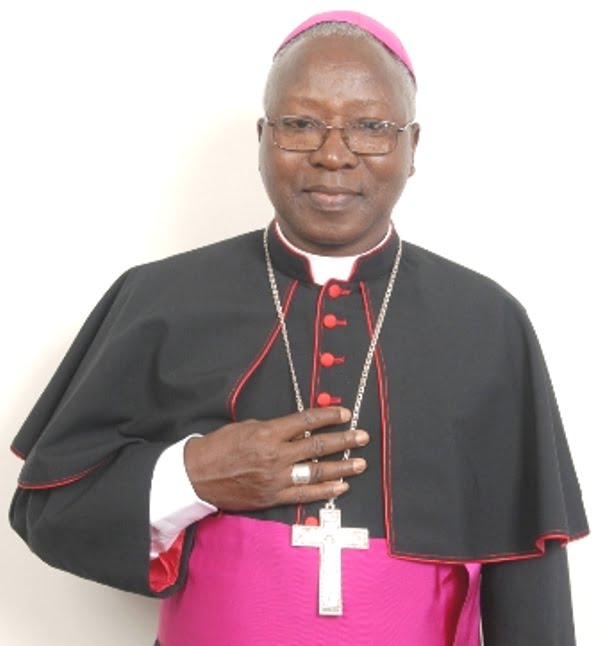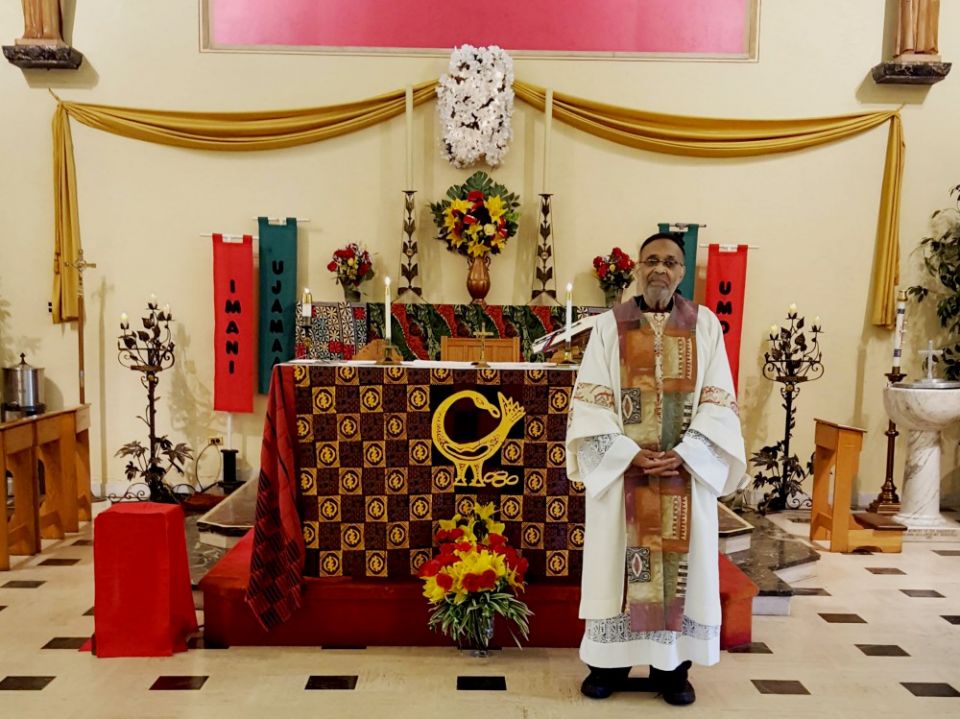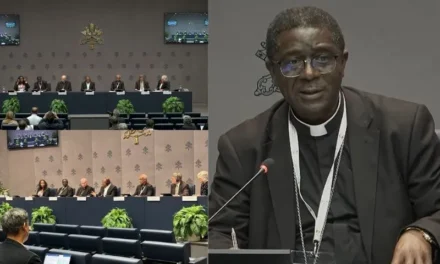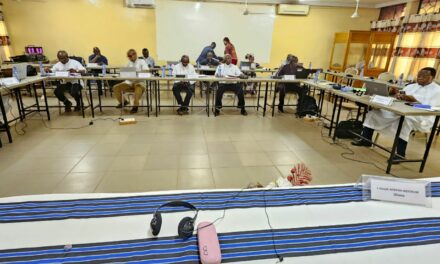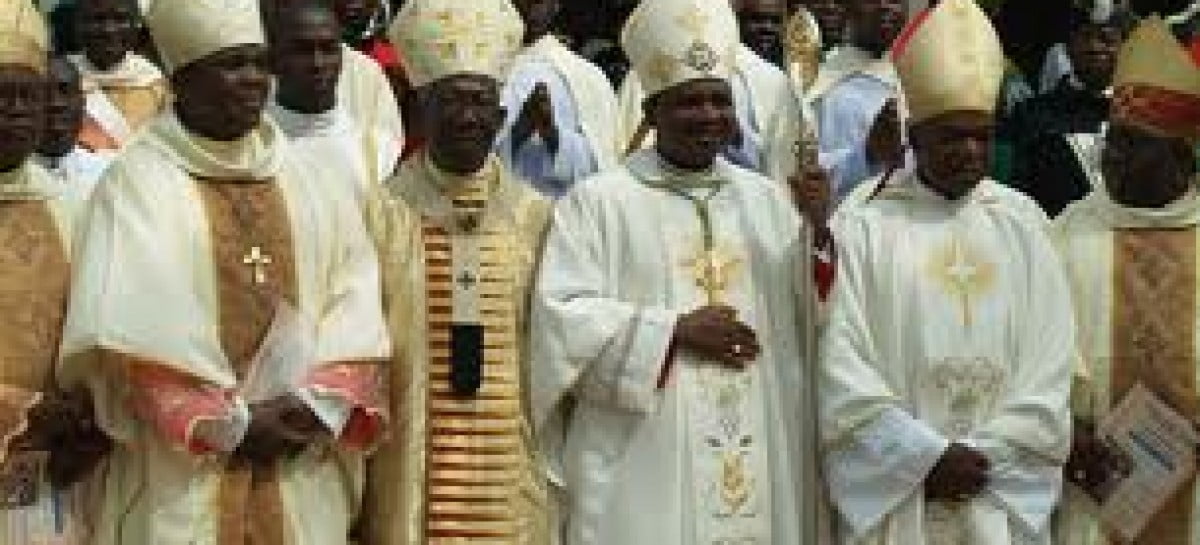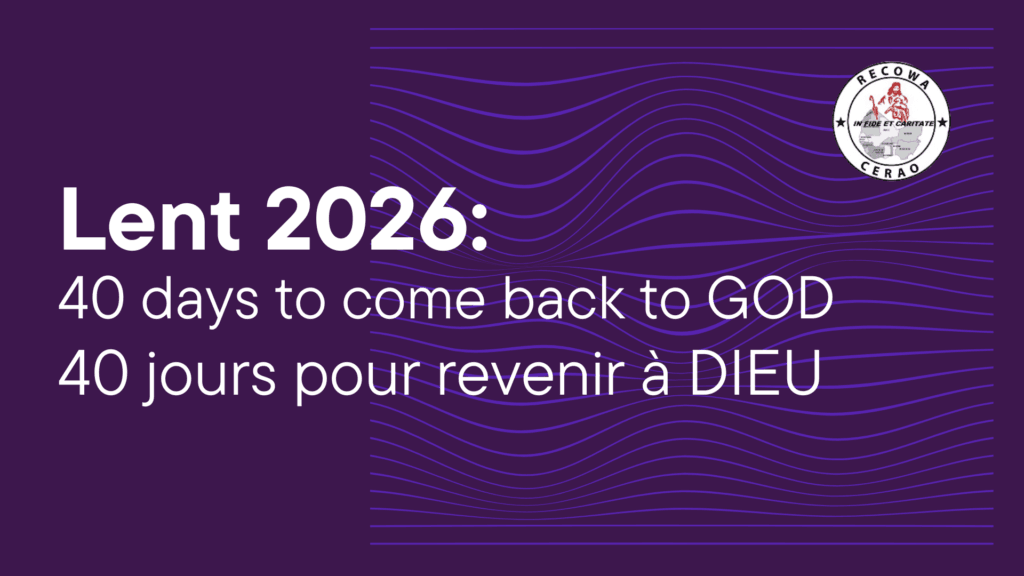Burkinabe Cardinal Philippe Ouédraogo, the metropolitan Archbishop of Ouagadougou, participated for the first time in the Saint-François-de-Sales Days, which were held in Lourdes from January 22 to 24, in addition to his meetings with professionals from the Catholic media, he gave his findings on the crisis that is undermining his African country and threatening his traditional model of the religious coexistence. Reads his brief Interview with the Media…
His Eminence speaks…For five years, Burkina Faso has been plunged into violence that has already left more than 750 dead. As attacks are rarely claimed he said, we have no interlocutors to be able to discuss or negotiate. At the start of the crisis in 2015, the symbols of the state were targeted by terrorists (army, police, and customs). Then, they wanted to embroil us in inter-community violence, by attacking religious communities in the north of the country, in particular priests.
Our Protestant brothers were not spared, nor were the Muslims. I believe that we cannot speak of religious conflict: the crisis is global. We Catholics are affected like the rest.
He continued, culturally, our society is marked by a fraternal living together. Within the same family, one can find Muslims, Protestants, Catholics, and believers in traditional religions. Blood ties seem stronger than faith ties
Interreligious and interfaith dialogue is an important pivot of our pastoral work. Again on January 10, we, the religious authorities sent a message to the country for the New Year. It seemed important to us that the Burkinabés see us together, despite the difficulty, we remain united.
In answer to further questions, he continued, so far, we have been able to avoid interethnic and interfaith slippages. There have been reprisals against the Fulani, accused of having housed killers, but this has not started a cycle of violence. But until when will we keep our efforts to live together
How to avoid sinking into chaos?
In fact, we can already speak of a collapse: hundreds of Burkinabés have been killed, around 2,100 schools have closed … And there are already more than half a million internally displaced people! To avoid sinking, I think the main thing is to make the different groups aware of solidarity efforts.
In November, we, the Catholic Church, organized a day for the displaced in Ouagadougou. They were more than 3,000. We prayed for all the victims, regardless of religion, and provided them with material support. I was touched by the solidarity that manifested itself, like a woman from neighboring Togo with three large bags of clothes for the displaced.
Did the reactions of other countries measure up, according to you?
His Eminence …Mali and Niger suffer, like us, the horrible attacks of the terrorists. We cannot meet this challenge alone. Some countries have much more advanced expertise than ours and more substantial means. We need their help. As we say here: a single finger does not collect flour, it takes several! This scourge being global, it is necessary that there is a burst of solidarity at all levels.
We were very sensitive to the voice of the Holy Father, who invited to pray for us on several occasions. We also felt the solidarity of charities, in Europe, and in Africa.
You are 75 years old this Saturday, January 25: you will therefore soon deliver your letter of renunciation to the Pope. What is your assessment of your life in the service of the African Church? It is undeniable that the Church has brought a lot to African society, in terms of education, health, and human promotion. But evangelism, even if it has progressed a lot in fifty years, remains the priority of priorities. Christians make up only about 17% of the African population, compared to 30% globally.
More than 750 dead since 2015
His Eminence …Increasingly frequent and deadly, jihadist attacks in Burkina Faso have left more than 750 dead and 560,000 displaced since 2015. Thirty-six civilians were killed on Monday 20 January in the north of the country.
These attacks rarely claimed, are attributed to armed jihadist groups, some affiliated with Al-Qaida and others with Daesh. They regularly target religious leaders and places of worship, Christian and Muslim, mainly in the North.
In mid-January, the Burkinabé Parliament unanimously adopted a law allowing Burkina Faso the recruitment of « volunteers for the defense of their fatherland ».
xxxxx
Le cardinal burkinabé Philippe Ouédraogo, archevêque métropolitain de Ouagadougou, a participé pour la première fois aux Journées de Saint-François-de-Sales, qui se sont tenues à Lourdes du 22 au 24 janvier, en complément de ses rencontres avec des professionnels des médias catholiques, il a donné ses conclusions sur la crise qui sape son pays africain et menace son modèle traditionnel de coexistence religieuse. Lire sa brève interview avec les médias…
Son Eminence parle… Depuis cinq ans, le Burkina Faso est plongé dans des violences qui ont déjà fait plus de 750 morts. Comme les attaques sont rarement revendiquées, a-t-il déclaré, nous n’avons pas d’interlocuteurs pour discuter ou négocier. Au début de la crise en 2015, les symboles de l’État étaient visés par des terroristes (armée, police et douanes). Ensuite, ils ont voulu nous impliquer dans la violence intercommunautaire, en attaquant les communautés religieuses du nord du pays, en particulier les prêtres.
Nos frères protestants n’ont pas été épargnés, pas plus que les musulmans. Je pense que nous ne pouvons pas parler de conflit religieux: la crise est mondiale. Nous, catholiques, sommes touchés comme les autres.
Il a poursuivi, culturellement, notre société est marquée par un vivre ensemble fraternel. Au sein d’une même famille, on trouve des musulmans, des protestants, des catholiques et des croyants dans les religions traditionnelles. Les liens de sang semblent plus forts que les liens de foi
Le dialogue interreligieux et interreligieux est un pivot important de notre travail pastoral. Le 10 janvier encore, nous, les autorités religieuses, avons envoyé un message au pays pour la nouvelle année. Il nous a semblé important que les Burkinabés nous voient ensemble, malgré la difficulté, nous restons unis.
En réponse à d’autres questions, at-il poursuivi, jusqu’à présent, nous avons pu éviter les dérapages interethniques et interconfessionnels. Il y a eu des représailles contre les Peuls, accusés d’avoir hébergé des tueurs, mais cela n’a pas déclenché un cycle de violence. Mais jusqu’à quand allons-nous continuer nos efforts pour vivre ensemble
Comment éviter de sombrer dans le chaos?
En fait, on peut déjà parler d’un effondrement: des centaines de Burkinabés ont été tués, environ 2 100 écoles ont fermé … Et il y a déjà plus d’un demi-million de déplacés internes! Pour éviter de couler, je pense que l’essentiel est de sensibiliser les différents groupes aux efforts de solidarité.
En novembre, nous, l’Église catholique, avons organisé une journée pour les personnes déplacées à Ouagadougou. Ils étaient plus de 3 000. Nous avons prié pour toutes les victimes, quelle que soit leur religion, et leur avons fourni un soutien matériel. J’ai été touché par la solidarité qui s’est manifestée, comme une femme du Togo voisin avec trois grands sacs de vêtements pour les déplacés.
Selon vous, les réactions des autres pays ont-elles été à la hauteur?
Son Eminence… Le Mali et le Niger subissent, comme nous, les horribles attaques des terroristes. Nous ne pouvons pas relever ce défi seuls. Certains pays ont une expertise beaucoup plus avancée que la nôtre et des moyens plus importants. Nous avons besoin de leur aide. Comme on dit ici: un seul doigt ne recueille pas la farine, il en faut plusieurs! Ce fléau étant mondial, il faut qu’il y ait un éclat de solidarité à tous les niveaux.
Nous avons été très sensibles à la voix du Saint-Père, qui a invité à plusieurs reprises à prier pour nous. Nous avons également ressenti la solidarité des associations caritatives, en Europe et en Afrique.
Vous avez 75 ans ce samedi 25 janvier: vous allez donc bientôt remettre votre lettre de renonciation au Pape. Comment évaluez-vous votre vie au service de l’Église africaine? Il est indéniable que l’Église a apporté beaucoup à la société africaine, en termes d’éducation, de santé et de promotion humaine. Mais l’évangélisation, même si elle a beaucoup progressé en cinquante ans, reste la priorité des priorités. Les chrétiens ne représentent qu’environ 17% de la population africaine, contre 30% dans le monde.
Plus de 750 morts depuis 2015
Son Eminence… De plus en plus fréquentes et meurtrières, les attaques djihadistes au Burkina Faso ont fait plus de 750 morts et 560 000 déplacés depuis 2015. Trente-six civils ont été tués lundi 20 janvier dans le nord du pays.
Ces attaques, rarement revendiquées, sont attribuées à des groupes djihadistes armés, certains affiliés à Al-Qaida et d’autres à Daesh. Ils ciblent régulièrement les chefs religieux et les lieux de culte, chrétiens et musulmans, principalement dans le Nord.
À la mi-janvier, le Parlement burkinabé a adopté à l’unanimité une loi autorisant le Burkina Faso à recruter des « volontaires pour la défense de leur patrie ».
- CATHOLIC ARCHBISHOP IN GHANA HAILS POPE LEO XIV AS GOD’S GIFT - 23 mai 2025
- POPE LEO XIV TO APPROVE CANONIZATIONS - 22 mai 2025
- THE EVOLUTION OF PAPAL TRANSPORTATION - 20 mai 2025

